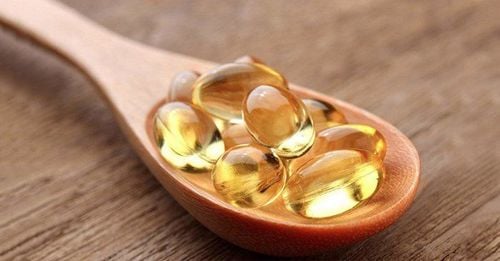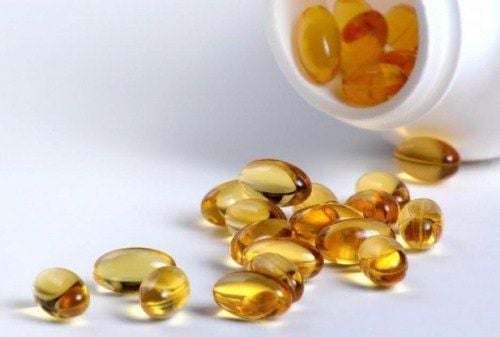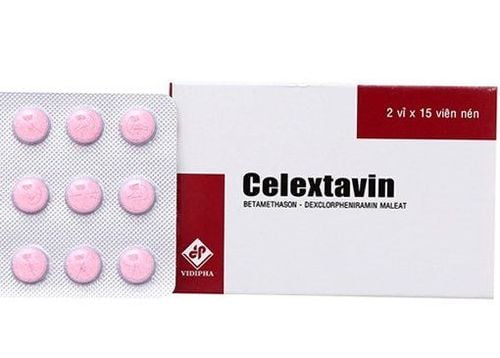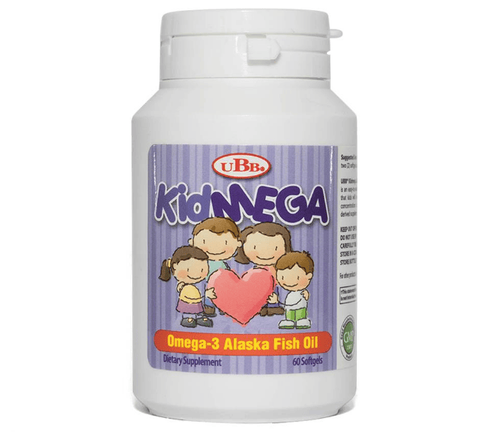This is an automatically translated article.
The addition of fish oil is extremely necessary to help the body stay healthy. In addition to supporting the brain, eyes and heart, fish oil can also prevent inflammatory conditions in the body. However, the recommended daily dose of fish oil will vary depending on each individual or specific age.
1. Why should fish oil supplements?
According to experts, the regular use of fish oil brings many benefits to people's overall health. Fish oil is a rich source of omega-3 fatty acids, which help keep the heart healthy. On the other hand, the body usually cannot produce this acid on its own, so you need to get them through your daily diet.
Fish oils contain vitamin A - an important antioxidant and vitamin D can help strengthen the body's immune system.
Fish oils that contain omega-3s include eicosapentaenoic acid (EPA) and docosahexaenoic acid (DHA). These are two types of acids that have a great impact on the development as well as the main functioning of the brain.

Bổ sung dầu cá để có một trái tim luôn luôn khỏe mạnh
2. How is fish oil supplementation appropriate for each subject?
Several recommendations have been made for total omega-3 intake, as well as EPA and DHA. The Reference Daily Intake (RDI) of EPA combined with DHA is 250 – 500 mg.
When purchasing fish oil supplements, you should read labels carefully to determine the amount of EPA and DHA provided. Typically, 1,000 ng of fish oil will provide about 300 mg of EPA combined with DHA.
2.1 For adults The Reference Daily Intake (RDI) for total omega-3s is 1,100 mg for women and 1,600 mg for men.
Most people will get some omega-3 through their daily diet from foods like: Soybean oil, flaxseeds or walnuts, however they contain Alpha Lipoic acid (ALA) .
Although the body can convert ALA into EPA and DHA, it cannot produce adequate amounts of these fatty acids on its own. The body can be deficient in EPA and DHA unless you consume about two servings (8 ounces or 224 grams) of fatty fish (fish that contain fish oil) per week.
According to nutrition experts, supplementing with about 3,000 mg of fish oil per day is considered safe for adults.

Dầu cá có thể được hấp thụ thông qua thực phẩm được nạp vào cơ thể mỗi ngày
2.2 For pregnant women EPA and DHA are essential for the healthy development of the fetus. In particular, DHA is usually accumulated in the brain during the last 3 months of pregnancy. However, many pregnant women do not meet the full Reference Daily Intake (RDI) for these fatty acids.
Supplementing with EPA and DHA during pregnancy can have many health benefits for babies in the first few years of life, including improved problem-solving skills, reduced risk of asthma and food allergies.
According to WHO recommendations, pregnant women should supplement with 300mg of EPA combined with DHA every day, of which DHA is 200mg. Because most fish oil supplements contain more EPA than DHA, you should try to choose a fish oil with a higher DHA ratio.
In addition, women in pregnancy should also be careful with cod liver oil, because it contains a large amount of vitamin A. Too much vitamin A will reduce the development of the fetus. In 1 teaspoon (4 ml) of cod liver oil will provide 2,501 IU of vitamin A, which is about 97% of the RDI during pregnancy.
2.3 For infants and children The appropriate intake of omega-3s for infants up to 1 year of age is 500 mg, and at age 14 will be gradually increased to the adult supplemental dosage.
Likewise, recommendations for EPA and DHA will vary depending on age. For example, for a 4-year-old, the appropriate dose of an EPA plus DHA supplement is about 100 mg, while an 8-year-old will need about 200 mg.

Liều lượng bổ sung EPA và DHA phụ thuộc vào từng độ tuổi
Usually, children's cod liver oil will provide some of the vitamins A and D that are stored in the fish liver, but other fish oil supplements have added vitamins D, A and E. Vitamin E has the ability to keep fish oil stable and prolong its shelf life. So when buying fish oil supplements for babies or young children, you should opt for stable ones to ensure the correct amount of nutrients.
In addition, adequate intake of both EPA and DHA will help you maintain and protect a healthy heart. Especially for people with coronary heart disease or at risk of heart attack should supplement about 1,000 mg of synthetic EPA and DHA per day.
3. Is fish oil better than other omega-3 supplements?
Fish oil supplements can provide large amounts of EPA, DHA, and vitamins A and D. Meanwhile, general omega-3 supplements may or may not contain EPA and DHA, depending on them. derived from fish, seaweed or vegetable oils.
Omega-3 supplements from vegetable oils will help increase overall omega-3 intake, but they are unlikely to increase EPA and DHA levels.
Please dial HOTLINE for more information or register for an appointment HERE. Download MyVinmec app to make appointments faster and to manage your bookings easily.
Reference source: healthline.comSEE MORE
Using Omega 3 sensibly Omega-3 fatty acids - The ultimate beginner's guide to the 3 most important Omega-3 fatty acids













